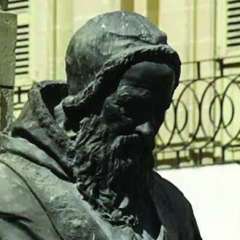Претражи Живе Речи Утехе
Showing results for tags 'subject'.
Found 2 results
-
"Why is the believing Catholic not subject to neurosis?" A question posed to Karl Jung in 1939 Social media grenade-launcher Matt Walsh recently posted the following on his FaceBook page: It's a fair question. It's certainly hard to make the case that our lives are so much more difficult than, say, those of our Great Depression era grandparents or great-grandparents. Add to this the fact that despite the ubiquity of mental health services in American society, we are in the midst of an ongoing and worsening mental health crisis, particularly among the young. It's almost as if the expansion of mental health services has in some way contributed to the proliferation of mental illness. Thousands of articles like the following have been written over the past half-decade examining the problem and ultimately failing to come up with good answers: Over 50% Of Liberal, White Women Under 30 Have A Mental Health Issue. Are We Worried Yet? Depression rates among US adults reach new high: Gallup Rates of Depression and Anxiety Are Rising in Young People Many will no doubt blame the mental health crisis on a host of pop-politico-cultural bugbears: sexism, student debt, racism, transphobia, the COVID shutdowns, MAGA-terror, etc. But could the core reason for this epidemic of mental illness be that fewer people than ever before in the West are practicing Catholics who make regular and devout use of the sacraments of the Church? Now before you dismiss this possibility out of hand, I'd like to call your attention to a talk by one of the primordial psychoanalysts of the early 20th century, Carl Gustav Jung. Jung was the offspring of a Swiss Lutheran pastor. Several of his uncles were also Protestant pastors, and it was expected that Carl himself would find a career in the ministry. Instead, Jung rejected Christianity and entered the nascent world of psychotherapy as it was developing under Sigmund Freud. During his life, Jung had numerous spiritual experiences, nearly all of which a believing Catholic might consider encounters with the demonic. All this is to say that Carl Jung was no great friend of Catholicism. And yet, in a lecture he gave in London in April of 1939, on the eve of the outbreak of the Second World War, Jung was asked to offer insights on why the believing Catholic was not subject to neurosis, or at least not to the same extent as, say, Protestants or Jews. Jung's answer is fascinating: Of course, by "the Mass", Jung was referring the Traditional Latin Mass as it was known everywhere by Catholics prior to the late 1960s. After a tangent during which Jung elaborates on ancient symbolism as found in Catholic ritual, he returns to confession with this very curious passage: God only knows if what Jung says above regarding the Pope giving him a private blessing is actually true. His account has a pretty thick overlay of hubris, so it is perhaps best to take it with a grain of salt. But the fact remains that this former Lutheran spiritualist psychoanalyst who occasionally had communication with potentially demonic beings was astounded by the psychological resilience of practicing Catholics. I looked up the American study Jung cited and found out that it was part of a 1938 work entitled Explorations in Personality: A Clinical and Experimental Study of Fifty Men of College Age by Henry A. Murray. Murray was another mid-20th century psychological researcher who was no great friend of Catholics. In his conclusion, Murray writes: Were they really "self-deceived"? Or had they adopted a faith that allowed them to see the world as it truly is, understand it, and react to the challenges presented by life in healthy and resilient ways? Given that Murray's later career included abusive experiments on college students, one of whom was apparently so damaged that he went on to achieve infamy as the Unabomber, I'm not particularly concerned about his judgments on self-deception. Sad to relate, those very aspects of Catholicism which formed such mentally strong men and women in the past—the Mass, the rituals, the sacraments and confession in particular—were all watered down and de-emphasized in the aftermath of the 1960s. The result has been that today's Catholics, practicing or otherwise, seem just as susceptible to mental illness as the rest of society. Nevertheless, we can hear echoes of this resilience even today. Anecdotally, some of the most emotionally and psychologically solid people I have ever known may be found among that relatively small remnant of Catholics who steadfastly practice the faith with reverence and devotion. Never have I encountered a group of people who have endured so much personal suffering with such abiding grace. I am continually amazed at how many of these good people are struck with truly gut-wrenching family tragedies. And yet, they are able to endure, heal, and carry on, trusting that Christ will always be with them and that their departed loved ones are even now praying for them before the heavenly throne of God Almighty. It is not controversial to observe that many of the current-day princes of the Catholic Church have wandered far from the traditional teachings and practices of the Church. Perhaps if these men would pause their awkward shamble after adolescent sexualized mysticism, they might realize that the ancient practice of Catholicism which they largely discarded in the 1960s was among the greatest treasures that God has ever gifted to mankind. At the very least, we can posit that the traditional practice of Catholicism is a way to comprehend the triumphs and tragedies of human existence that does not ultimately drive men mad. The same can not be said for the neurotic mess that modern Western secular culture has become. Gloria Romanorum: "Why is the believing Catholic not subject to neurosis?" A question posed to Karl Jung in 1939 GLORIAROMANORUM.BLOGSPOT.COM Social media grenade-launcher Matt Walsh recently posted the following on his FaceBook page: "Many people claim to know for a...
-
“DEAR LOYAL SUBJECT OF THE TURKISH REPUBLIC, MR. BARTHOLOMEW!”
тема је објавио/ла Ромејац у Руска Патријаршија
An Answer to the Invitation to Constantinople’s Ukrainian Robber Council In the letter below, His Eminence Metropolitan Luke of Zaporozhye and Melitopol responds to the invitations being sent out by the Patriarchate of Constantinople to take part in its so-called “unification council” that aims to create a new church in Ukraine. Met. Luke has not hesitated to speak his mind throughout the recent and ongoing ecclesiastical crisis, and this letter is no exception. Whereas His Beatitude Metropolitan Onuphry of Kiev and All Ukraine chose to return his invitation unanswered to Constantinople, giving us an example of meekness and humility, Met. Luke offers us an example of fiery, righteous zeal—both examples that are good and necessary in the Church. *** Dear loyal subject of the Turkish Republic, Mr. Bartholomew! (better known as the “Ecumenical Patriarch”) We have learned from the mass media that you are sending invitations for the “council of the unrighteous” (Ps. 1:1) through government officials. In this regard, allow me to express to you and your envoys my heartfelt gratitude for the efforts you are making through the Ukrainian state apparatus and the juggling of the norms of canon law to destroy the Ukrainian Orthodox Church (the successors to the Church born in the Dnieper font), previously recognized by you as the sole canonical Orthodox Church in Ukraine! Thanks for what, you ask? For what you contribute by your actions to our Orthodox flock in entering the Kingdom of God, subjecting it to the discrimination and persecution that it is presently enduring. Unfortunately, you probably don’t know our people’s wise saying: “Love can’t be forced.” Your actions are those of a man blinded by the illusory glow of caesarean authority. By your participation in political projects aimed at splitting the unity of the Church, you’ve already placed your status as the first honored hierarch in Orthodoxy in serious doubt. You declare today that in your person you represent “the Mother Church” for the Ukrainian people. However, for some reason, you act as the ideological inspirer of a large-scale campaign aimed at inciting hatred towards the UOC, the seizure of its sacred sites, the persecution of its flock, and the undermining of the position of Orthodoxy in Ukraine in favor of the gathering momentum of the Uniate “crusade” on native Orthodox lands! What kind of mother helps torture her child? Those awaiting the swift advent of the Tomos are not afraid to shout such slogans at their gatherings: “Death to the enemy”; and under the walls of our diocesan administration: “Moscow priests to the gallows, like the communists!” This is how your new pupils treat us and the Ukrainian Orthodox Church as a whole, being in Eucharistic communion with the See entrusted to you. Terrible things stand behind these slogans: the dominance of political expediency in any important question of Church life, the reign of total persecution against a Church that doesn’t correspond to the general ideological line of the ruling elite, the desecration of holy sites and objects, and the perversion of the canons by longtime opponents of Orthodoxy, who are now actively disguising themselves in the garments of supporters of the autocephalous project being pushed by you. Are you yourself ready to believe in the “Ukrainian national God,” or is this just an attempt to take our people under your omophorion? Or, quite horribly, do the processes provoked by you have ordinary mercantile interests as their foundation? In your attempts to subject all the Orthodox Churches to the throne of Constantinople (like the Catholic Church), you forget that it was not a priest but a ceasar who was in power in Byzantium—an empire that hasn’t existed for many centuries already. And one of the reasons it’s gone—and perhaps the main one—is that at that time, some of your predecessors, the Byzantine patriarchs, allowed the faith to become a bargaining chip in the games of big politics. It’s a great pity that you don’t take this into account—or have deliberately forgotten it. After all, more than 500 years ago, it was precisely the betrayal of the Orthodox faith by Constantinople and its departure into the Unia with Rome, and not the geopolitical conditions of those times, that became the driving force behind Orthodoxy gaining independence from Byzantium in the lands of Rus’. Thank you, Mr. Bartholomew, for aiding in our salvation. The only thing the clergy (whom your throne imagines to be its own for some absurd reason) and flock inquire of you is: What prevented you from hearing us in the spring? What has so clouded your mind that you consider yourself the Patriarch of the entire world? Perhaps your next step will be the assertion that you created this world out of nothing? With gratitude and hope in God’s admonition for each of us, LUKE METROPOLITAN OF ZAPOROZHYE AND MELITOPOL http://orthochristian.com/117824.html?fbclid=IwAR0jKgDDVK8CzYX4iRUmaMiu-rpfmoYy-9miCeuznFXejq5Hu2kUINQVRno
Све поруке на форуму, осим званичних саопштења Српске Православне Цркве, су искључиво лична мишљења чланова форума 'Живе Речи Утехе' и уредништво не сноси никакву материјалну и кривичну одговорност услед погрешних информација. Објављивање информација са сајта у некомерцијалне сврхе могуће је само уз навођење URL адресе дискусије. За све друге видове дистрибуције потребно је имати изричиту дозволу администратора Поука.орг и/или аутора порука. Коментари се на сајту Поуке.орг објављују у реалном времену и Администрација се не може сматрати одговорним за написано. Забрањен је говор мржње, псовање, вређање и клеветање. Такав садржај ће бити избрисан чим буде примећен, а аутори могу бити пријављени надлежним институцијама. Чланови имају опцију пријављивања недоличних порука, те непримерен садржај могу пријавити Администрацији. Такође, ако имате проблема са регистрацијом или заборављеном шифром за сајтове Поуке.орг и Црква.нет, пошаљите нам поруку у контакт форми да Вам помогнемо у решавању проблема.
![]() © ☦ 2021 Сва права задржана.
© ☦ 2021 Сва права задржана.


